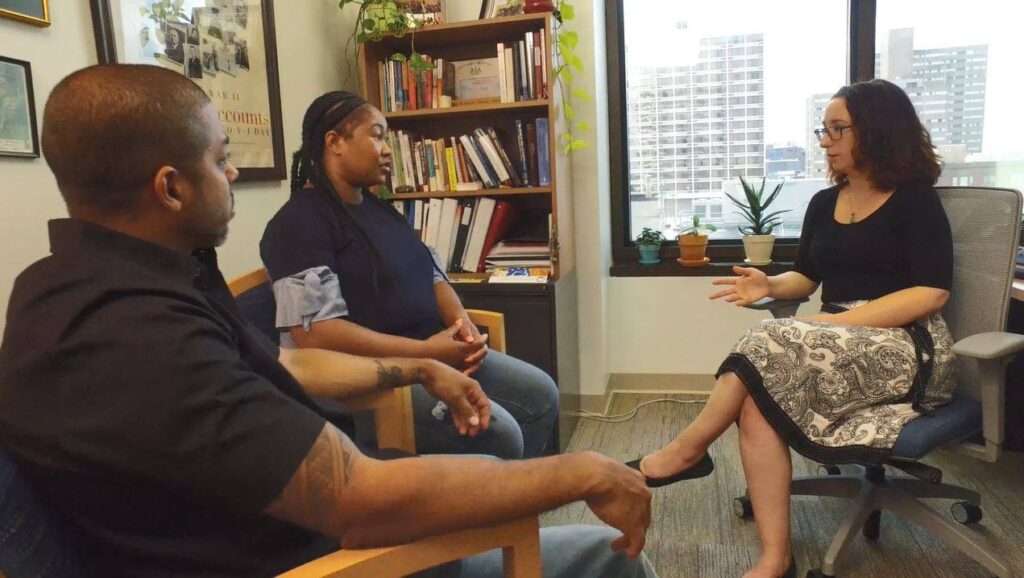While relationships are often filled with joy, it is not uncommon to encounter rough patches and challenges that put even the strongest bonds to the test. It is during these critical times that couples therapy can offer hope and healing, and growth. Therapist Dr. Ashleigh Adams, explains the ins and outs and answers common questions about couples therapy.
What is couples therapy?
Couples therapy is individuals in a relationship together talking with a licensed therapist. It could be about issues they’ve been having, maybe it’s about arguments or making a big decision. It can look a lot of different ways, but it’s a set of structured conversations over time.
Who is couples therapy for?
Couples therapy is for everyone. It is beneficial at any stage of a relationship where you are noticing some tension or finding yourself in the same argument over and over again. It does not have to be for those separated or divorcing. I recommend couples therapy when the environment is less intense because it is much easier to deal with issues and learn some skills and to be a better partner in your relationship then.
What is a couples session like?
In a therapy session, the therapist will ask you a lot of questions. Some examples could be relationship patterns that you may notice, how the two of you got together, why you are at couples therapy, did a specific event happen, and maybe questions about your family background because the relationship patterns we have from childhood frequently show up in our later relationships. The therapist will probably ask you about what happens in an argument and how intense those arguments get.
What are the benefits?
Couples therapy works. People frequently come to couple’s therapy pretty hopeless and concerned about not being able to save their relationship. But there’s always a reason that you got together in the first place and there’s a reason that you haven’t broken up yet.
I believe couples therapy helps people see themselves better, figure out how they want to change themselves and maybe change in the relationship. Other benefits are learning the skills to deescalate arguments, which is super helpful for better communication.
I also wish more people would do preventive counseling or couple’s therapy before those big events (moving in together, having a child together, while they’re pregnant, before they get married) where you’re really tying yourself to someone to make sure that you’re hashing everything out in advance rather than going in with completely different expectations, not having talked about what you’re each expecting.
What are some misconceptions about couples therapy?
Relationship is ending: I think the biggest myth of couples therapy is that if you go to couples therapy, your relationship is doomed. I believe couples therapy still has a pretty high stigma. It makes it a lot harder to do well in the couple’s therapy when you actually show up years too late. People who you may have known who went to couples therapy and broke up should have gone to couples therapy years before that, but didn’t because of the stigma around it.
Biased therapist: If you have a good couple’s therapist, you will not be in a situation where the couple’s therapist is siding with one person all the time. You will also not be in a position where the couple’s therapist is telling you whether you should stay together or break up.
Couples therapy will make things worse: If you get the inkling that something doesn’t feel right or is getting really hard for you and your partner to talk about, just try couple’s therapy. I have seen people come out the other side so much stronger. I still have some couples who reach back out and have a few booster sessions years later. It’s amazing to see how much they’ve grown in their relationship, how they’re growing together. They’re not growing apart like so many of us do and can. I always tell people to give it a try. It’s not going to make things worse, rather it’s an opportunity to make it better.

Cohen Veterans Network provides couples therapy to military and veteran couples. Contact us to find out more about our care available in-person or via CVN telehealth.
